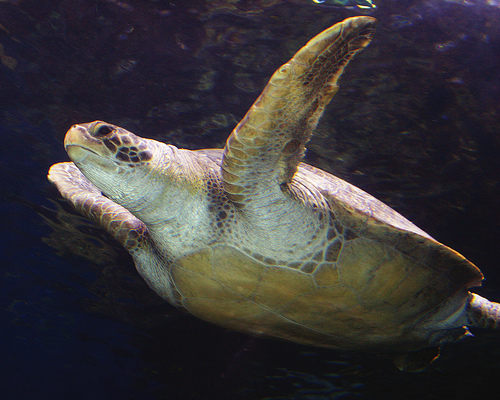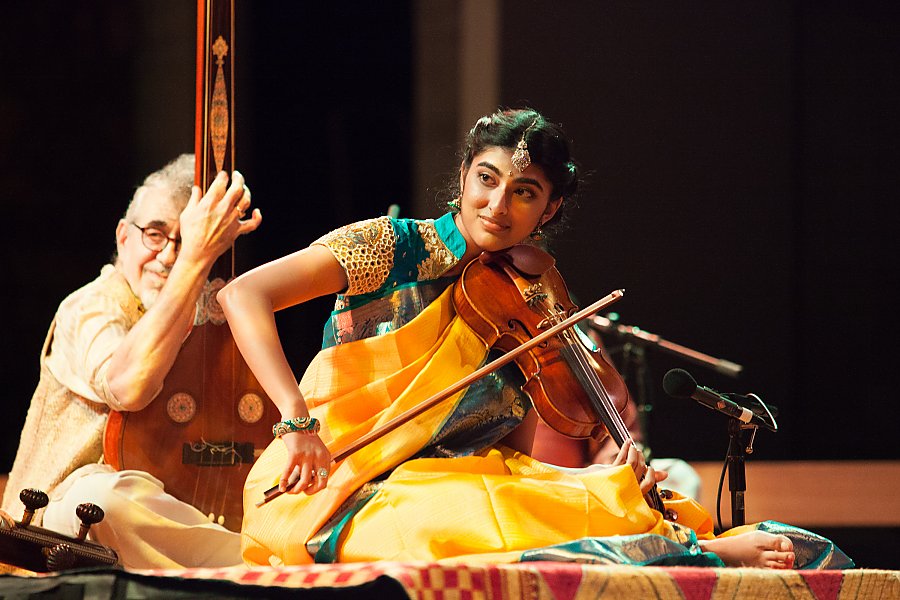
Ralphs
Discount tickets available at Ralphs for a limited time
Local restaurant Appu’s Café will cater the meal, followed by a performance in the Aquarium’s Ocean Theater by musicians playing traditional Indian instruments.

September 29, 2017
Experience the sounds and flavors of India for the first time at the Aquarium of the Pacific. On Sunday, October 1, 2017, the Aquarium will present an event in collaboration with The Music Circle called Divine Strings: An Evening of Meditative Indian Music. This performance will be accompanied by an authentic vegetarian dinner of Indian cuisine. The musicians performing are Aishu Venkataraman (violin), Vinod Venkataraman (mridangam, a traditional Indian drum), and Srinivasan G (morsing, or mouth harp). Dinner will be served at 5:30 p.m. on the Aquarium’s rooftop Veranda overlooking Rainbow Harbor. The musicians will perform in the Aquarium’s Ocean Theater at 7:00 p.m.
When: Sunday, October 1, 2017, from 5:30 p.m. to 8:00 p.m.
Cost: Tickets for the dinner and concert are $50. Tickets for the concert only are $25 ($20 for Aquarium members). Dinner is limited to 60 people.
Music: Indian classical music is based principally on melody and rhythm. There are two systems of Indian music: the music of north India called Hindustani music and the music of south India called Carnatic music. The system of south Indian music traces back nearly 2,000 years. The system of north Indian music came to prominence with the mogul invasion in the early thirteenth century and gained momentum under the rule of King Akbar. Both systems follow a pattern called Gurukulam, oral teachings taught directly by the teacher to the disciple, in sharp contrast to the notation method used in the West. The heart of Indian music is the Ragam, the melodic form upon which the artists improvises. In the first half of the concert, the group will perform a raga that is common to both systems for elaboration. This will be followed by an extempore percussion duet. The of the raga is one typically performed in slow to medium speeds and capable of inducing moods of peace, devotion, and pathos. Post intermission, the group will select a raga of a semi-classical nature and conclude with some Bhajans, which are free form. Indian music, being very spontaneous and improvised, all raga selection and time signatures depend on the ambience that is created within the performance space.
Menu:
Appetizers: Vegetarian samosas and pakoras (fritters with onions, cauliflower, and potatoes)
Main course: Palak paneer (cooked spinach with paneer cheese roasted with Indian spices), vegetable malai (a vegan dish made with coconut milk), aloo gobhi (cauliflower and potato curry), rice pilaf, and naan bread
Dessert: Gulab jamun (a sweet Indian dessert deep fried and dropped in sugar syrup with a hint of rose water)
Highlighted Artists: Aishu Venkataraman, classical violin: Aishu, born Aishwarya Venkataraman in Northridge, California, grew up surrounded by music and musicians. She began her training on the Suzuki violin at the age of two. At age four she started learning the Carnatic or south Indian style of music under the tutelage of the eminent violin maestro T.N. Krishnan. While continuing to play south Indian classical music, Venkataraman began her training at the famed Berklee College of Music with an emphasis on jazz performance. She was the youngest student to receive a bachelor’s degree from this institution at age thirteen. She went on to complete her second bachelor’s degree in human biology from Stanford University. Currently, she is a final year medical student at Baylor College of Medicine pursuing an interest in pediatric neurology. Venkataraman’s tonal quality, spectral purity, and strong bowing techniques are the hallmarks of her performance style. Her proficiency in jazz and Carnatic music makes her a versatile performer. More information can be found on divinestrings.com.
Guru Vinod Venkataraman: Born into a family of rich musical ancestry, Guru Vinod Venkataraman is a native of Bombay, India. He is a professional percussionists and a professor of applied mathematics. Guru Venkataraman has served as an integral collaborator with many Indian musicians and jazz musicians, including Stephane Grapelli, Larry Coryell, Hubert Laws, and Alice Coltrane. Renowned jazz artists and film directors have sought out Guru Venkataraman to add his unique flavor to their stage and recorded performances. Today, Guru Venkataraman lives in Long Beach and continues to impart his knowledge of music through the ancient tradition called Gurukulavasam.

Discount tickets available at Ralphs for a limited time